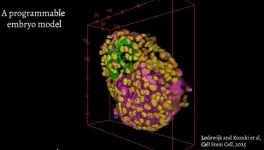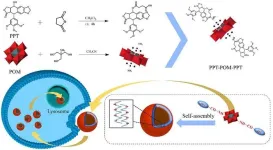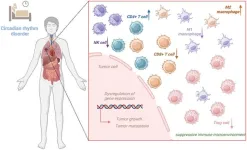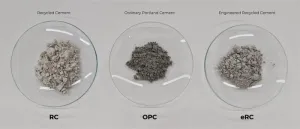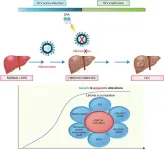(Press-News.org) A team of researchers from Cleveland Clinic Genomic Medicine share insights from an early set of 19,000 patients to receive immune checkpoint inhibitor treatments for colorectal cancer in the U.S.
The report comes from the laboratory of Stephanie Schmit, PhD, MPH, and was published in JAMA Network Open. It serves as an opportunity to better understand how immune checkpoint inhibitor treatments, including PD-1 and PD-L1 inhibitors, work in a larger population that reflects real-world settings. Dr. Schmit collaborated with a team of researchers that included Moffitt Cancer Center.
The results showed immune checkpoint inhibitors greatly improved survival rates for patients living with metastatic MSI-H colorectal cancer, in line with clinical trials. Investigators also found certain conditions that may improve the therapy’s effectiveness against a specific type of difficult-to-treat tumor called an MSS tumor under certain conditions, building on the initial clinical trial results.
“Because clinical trials have strict inclusion criteria, their findings are not always generalizable to the greater population,” says data scientist and study first author Marco Matejcic, PhD. “We wanted to ensure that the treatment works the same in routine clinical practice as it did in clinical trials. There is always a possibility that there are factors unexamined in clinical trials that may influence treatment outcomes.”
Immune checkpoints act as a brake to keep immune cells from attacking normal, healthy cells. Immune checkpoint inhibitors work to remove this brake, which boosts the immune system’s ability to attack tumors and other cancerous cells.
Immune checkpoints can include molecules located on the surface of immune cells that act as "scanners”, and molecules located on the surface of all other healthy cells that act as “barcodes.” If a cell does not have immune checkpoint proteins it is generally either unhealthy or a pathogen, so the immune system will attack it.
Many colorectal cancer tumors have specific mutations that let them produce and display a lot of immune checkpoint proteins. In this way, the tumor can disguise itself as a normal, healthy part of the body.
In 2017, the FDA approved six immune checkpoint inhibitors to be used for treatment of colorectal cancer patients with microsatellite instable (MSI-H) tumors. The therapies had great success as a treatment for metastatic colorectal cancer in clinical trials, but the study team used an international database from healthcare technology company Flatiron Health to learn how a large group of patients responded to the treatment in typical, routine clinical practice.
Dr. Matejcic, who works in Dr. Schmit’s lab, teamed up with co-first author Shahla Bari, MD, an oncologist who formerly worked at Moffitt, to analyze electronic health records of almost 19,000 individuals who received treatment for their colorectal cancer between 2013 and 2019. He analyzed the records to identify factors that correlated with a specific treatment outcome for patients treated with or without the immune checkpoint inhibitors.
The team’s results supported the earlier clinical trial findings, showing that immune checkpoint inhibitors greatly improved survival rates for patients living with MSI-H metastatic colorectal cancer.
Interestingly, they also identified different factors that could influence how well the treatments worked in patients with microsatellite stable (MSS) tumors. MSS tumors are generally not very responsive to the immune checkpoint inhibitor therapy, so the FDA currently approves the treatment for MSI-H tumors.
“While most of the individuals with MSS tumors we observed responded poorly, there actually were some MSS tumors with durable responses,” Dr. Schmit says. “Factors like enzyme levels, microbiome activity, additional medications and more each played a small role in determining a MSS tumor’s response to immune checkpoint therapy, though we can’t make any specific recommendations until we do more research.”
Many physicians prescribe chemotherapy or immunotherapy based on their patients’ tumor status. Because individuals with MSS tumors did not respond as well to the therapy in clinical trials, physicians are less likely to prescribe immune checkpoint inhibitors to these patients. The researchers' additional findings indicate there are more options.
“Our study may provide new guidelines/changes in guidelines for MSS tumors that have generally been unresponsive to immune checkpoint inhibitors in clinical trials, although our findings need to be replicated in larger studies,” Dr. Matejcic says. “We hope that our findings will contribute to improving the survival outcome of MSS colorectal cancer patients who are currently unresponsive to immunotherapy.”
END
Analysis of new colorectal cancer immunotherapy shows more treatment options
Insights from first patients treated with PD1 and PD-l1 immune checkpoint inhibitors for metastatic colorectal cancer reinforced and built on successful clinical trial results
2025-03-20
ELSE PRESS RELEASES FROM THIS DATE:
Scientists use cellular programming to mimic first days of embryonic development
2025-03-20
The earliest days after fertilization, once a sperm cell meets an egg, are shrouded in scientific mystery.
The process of how a humble single cell becomes an organism fascinates scientists across disciplines. For some animals, the entire process of cellular multiplication, generation of specialized cells, and their organization into an ordered multicellular embryo takes place in the protective environment of the uterus, making direct observation and studies challenging. This makes it difficult for scientists to understand what can go wrong during that process, and how specific risk factors and the surrounding environment may prevent ...
Potential targeted therapy for pediatric brain cancer identified by Dana-Farber team
2025-03-20
Boston – An international team of clinical collaborators, led by physician scientists from Dana-Farber Cancer Institute, performed a first-ever clinical test of the targeted therapy avapritinib in pediatric and young patients with a form of high-grade glioma. They found that the drug, already FDA-approved for certain adult cancers, was generally safe and resulted in tumor reduction visible on brain scans, as well as clinical improvement, in 3 out of 7 patients.
The study was published in Cancer Cell.
Pediatric-type high-grade gliomas are currently incurable brain tumors with median survival times less than 18 months after initial diagnosis.
Avapritinib ...
Self-assembled vesicles containing podophyllotoxin covalently modified with polyoxometalates for antitumor therapy
2025-03-20
POMs are a class of inorganic metal-oxygen cluster compounds with broad-spectrum antitumor potential. However, their strong hydrophilicity and poor lipophilicity result in insufficient cell membrane permeability, and high doses are required to achieve therapeutic effects, which severely limits their clinical application. To address this challenge, the research team proposes a covalent modification strategy: the construction of an amphipathic drug molecule PPT-POM-PPT by linking the hydrophobic anti-tumor drug Podophyllotoxin (PPT) with hydrophilic POMs. This molecule ...
Circadian rhythms in tumor regulation: Impacts on tumor progression and the immune microenvironment
2025-03-20
Circadian rhythms are endogenous time-keeping mechanisms that regulate physiological processes in response to external light-dark cycles. These rhythms are orchestrated by the suprachiasmatic nucleus (SCN) in the hypothalamus and involve a network of genes, including CLOCK and BMAL1, that influence metabolism, immune responses, and cell proliferation. Recent research has highlighted the crucial role of circadian rhythms in tumor biology, demonstrating that their dysregulation contributes to tumorigenesis, progression, and metastasis. Additionally, circadian rhythms influence the tumor immune microenvironment and the ...
The emerging role of flavonoids in the treatment of type 2 diabetes mellitus: regulating the enteroendocrine system
2025-03-20
Type 2 diabetes mellitus (T2DM) is a chronic metabolic disorder with a rapidly increasing global prevalence. It is primarily characterized by insulin resistance, β-cell dysfunction, and impaired glucose homeostasis. Emerging research suggests that flavonoids, a diverse group of plant-derived polyphenols, may offer therapeutic potential in managing T2DM. These compounds exert antidiabetic effects through multiple mechanisms, including improving insulin sensitivity, enhancing β-cell function, modulating ...
Improving patient experience for the millions who visit an ED annually
2025-03-20
INDIANAPOLIS -- A large scale study by researchers from the Regenstrief Institute and the Indiana University School of Medicine has found that patient pain upon arrival to the Emergency Department (ED) as well as the use of hallway beds and radiology studies in the ED are associated with patient experience, although not in the same ways.
The study’s tens of thousands of observations including clinical and operational data revealed that regardless of how promptly or successfully pain was treated in the ED, the amount of pain the patient was in when they arrived was associated with patient experience ...
Recycled cements drive down emissions without slacking on strength
2025-03-20
Giving a second life to construction materials after demolition, engineers at the University of São Paulo and Princeton have developed an approach for recycling cement waste into a sustainable, low-carbon alternative that is comparable in performance to the industry standard.
In addition to lowering the carbon intensity of the cement and concrete industry, the process could enable new uses for construction and demolition waste, of which concrete is a significant component. In 2018 in the United States, the total ...
Beyond the cure: Navigating hepatocellular risk and surveillance after hepatitis C eradication in the direct-acting antiviral era
2025-03-20
Hepatitis C virus (HCV) infection remains a major global health burden, affecting millions worldwide and contributing significantly to hepatocellular carcinoma (HCC) development. The introduction of direct-acting antivirals (DAAs) has revolutionized HCV treatment, achieving high rates of sustained virologic response (SVR) and reducing HCV-associated morbidity and mortality. Despite these advancements, the risk of HCC persists in certain populations, particularly those with pre-treatment cirrhosis or advanced fibrosis (F3). This review examines the ...
Lupus Research Alliance grants inaugural awards to 11 researchers focused on engineered cell therapies for. Lupus
2025-03-20
The Lupus Research Alliance (LRA) is proud to announce the inaugural recipients of the new Targeted Research Program on Engineered Cell Therapies for Lupus (TRP-ECT) to support the development and mechanistic understanding of safe and accessible next-generation engineered cell therapies for people with lupus. Engineered cell therapies, such as CD19-targeted chimeric antigen receptor (CAR) T cells, involve reengineering a patient’s own T cells to recognize and attack cells that cause disease.
The LRA established this program to build upon the promise already shown for engineered cell therapies in treating and potentially curing lupus, including ...
Researchers discover Achilles heel of Lyme disease pathogen
2025-03-20
Washington, D.C.—Researchers have discovered that an enzyme can serve as an ideal target for developing new therapeutics against Lyme disease, and most likely other tick-borne diseases as well. The finding was reported in mBio, a journal of the American Society for Microbiology.
Lyme disease is the most commonly reported tick-borne illness in the United States and Europe. Its causative pathogen, Borrelia burgdorferi, has evolved unique metabolic pathways to cope with its enzootic life cycle, ...
LAST 30 PRESS RELEASES:
Scientists show how to predict world’s deadly scorpion hotspots
ASU researchers to lead AAAS panel on water insecurity in the United States
ASU professor Anne Stone to present at AAAS Conference in Phoenix on ancient origins of modern disease
Proposals for exploring viruses and skin as the next experimental quantum frontiers share US$30,000 science award
ASU researchers showcase scalable tech solutions for older adults living alone with cognitive decline at AAAS 2026
Scientists identify smooth regional trends in fruit fly survival strategies
Antipathy toward snakes? Your parents likely talked you into that at an early age
Sylvester Cancer Tip Sheet for Feb. 2026
Online exposure to medical misinformation concentrated among older adults
Telehealth improves access to genetic services for adult survivors of childhood cancers
Outdated mortality benchmarks risk missing early signs of famine and delay recognizing mass starvation
Newly discovered bacterium converts carbon dioxide into chemicals using electricity
Flipping and reversing mini-proteins could improve disease treatment
Scientists reveal major hidden source of atmospheric nitrogen pollution in fragile lake basin
Biochar emerges as a powerful tool for soil carbon neutrality and climate mitigation
Tiny cell messengers show big promise for safer protein and gene delivery
AMS releases statement regarding the decision to rescind EPA’s 2009 Endangerment Finding
Parents’ alcohol and drug use influences their children’s consumption, research shows
Modular assembly of chiral nitrogen-bridged rings achieved by palladium-catalyzed diastereoselective and enantioselective cascade cyclization reactions
Promoting civic engagement
AMS Science Preview: Hurricane slowdown, school snow days
Deforestation in the Amazon raises the surface temperature by 3 °C during the dry season
Model more accurately maps the impact of frost on corn crops
How did humans develop sharp vision? Lab-grown retinas show likely answer
Sour grapes? Taste, experience of sour foods depends on individual consumer
At AAAS, professor Krystal Tsosie argues the future of science must be Indigenous-led
From the lab to the living room: Decoding Parkinson’s patients movements in the real world
Research advances in porous materials, as highlighted in the 2025 Nobel Prize in Chemistry
Sally C. Morton, executive vice president of ASU Knowledge Enterprise, presents a bold and practical framework for moving research from discovery to real-world impact
Biochemical parameters in patients with diabetic nephropathy versus individuals with diabetes alone, non-diabetic nephropathy, and healthy controls
[Press-News.org] Analysis of new colorectal cancer immunotherapy shows more treatment optionsInsights from first patients treated with PD1 and PD-l1 immune checkpoint inhibitors for metastatic colorectal cancer reinforced and built on successful clinical trial results
